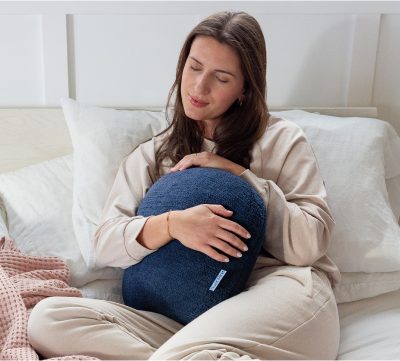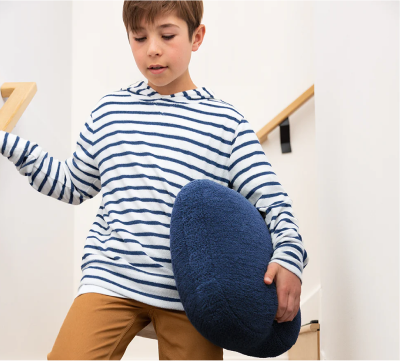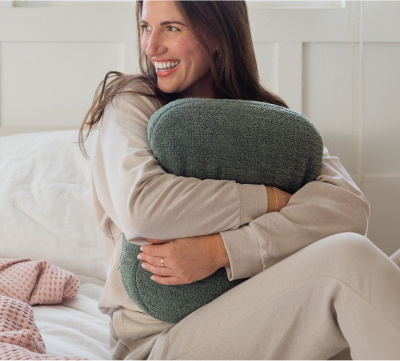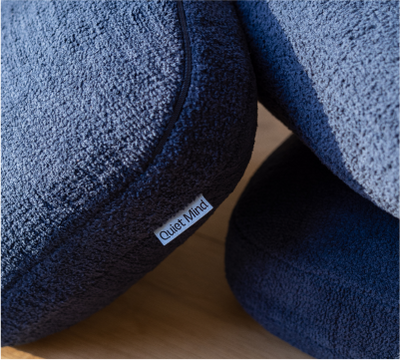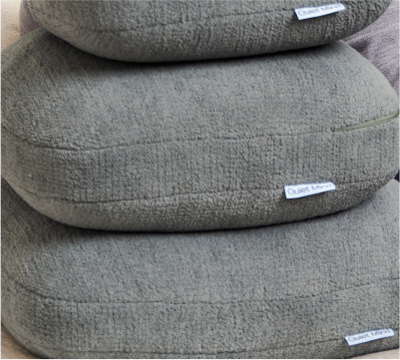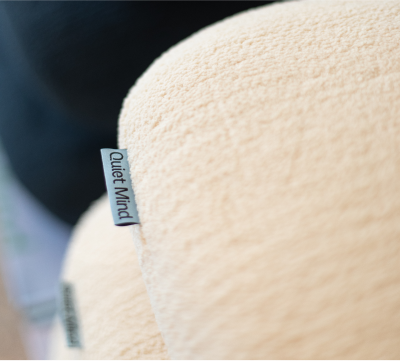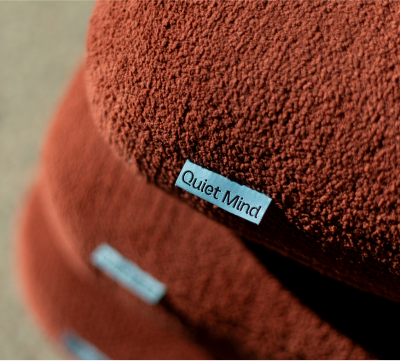The room is quiet, but your brain isn’t. Focus drifts, motivation falters, and thoughts pile up faster than you can act on them. For people living with attention deficit hyperactivity disorder (ADHD), this isn’t just a fleeting frustration, it’s a daily experience
Among the many strategies explored for managing these challenges, one question continues to come up: Can caffeine help?
We drink it every day: in coffee, tea, and energy drinks. Caffeine is a natural stimulant that sharpens alertness and boosts wakefulness. But when it comes to the treatment of ADHD, the answer is more nuanced. Caffeine consumption may affect focus in some people with ADHD, while for others, it leads to restlessness, anxiety, or disrupted sleep.
This guide explores the science behind caffeine and ADHD, real-world insights, and how to use this information to make informed choices about your body and brain.
How Caffeine Works in the Brain
Caffeine works by blocking adenosine, a chemical in the brain that promotes tiredness. This is why drinking coffee or other caffeinated beverages makes you feel more awake. But caffeine’s reach goes further. It also influences dopamine, the neurotransmitter heavily involved in ADHD brain function, particularly in focus, motivation, and reward processing.
Caffeine can boost alertness and may support improvement in ADHD symptoms like inattention and sluggish cognition. This is why some researchers are exploring caffeine in the treatment of ADHD as a complementary or alternative approach, especially for those who are medication-averse or prefer natural solutions.
However, caffeine affects people differently. The response may depend on genetics, age, sleep patterns, and other co-occurring conditions.
Caffeine’s Stimulant Effect vs. ADHD Medications
Both caffeine and prescription medication for ADHD are stimulants, but they differ significantly in potency, targeting, and clinical use.
|
Characteristics |
Caffeine |
ADHD Medications |
|
Stimulant Strength |
Mild |
Strong |
|
Mechanism of Action |
Blocks adenosine, affects dopamine |
Increases dopamine & norepinephrine |
|
Prescription Required |
No |
Yes |
Caffeine is a stimulant, but it’s far less targeted than medications like Adderall or Ritalin, which are used to treat ADHD by correcting specific neurotransmitter imbalances.
For many adults with ADHD, prescription medication is an effective treatment for ADHD. But caffeine could offer a gentler option when used mindfully, especially for those with milder symptoms or those seeking natural treatments for ADHD.
Dopamine, Adenosine, and Neurotransmission
In the ADHD brain, dopamine transmission is often imbalanced. This contributes to certain symptoms of ADHD such as inattention, impulsivity, and difficulties with motivation.
While caffeine does not significantly raise dopamine levels like medications used to treat ADHD, it does block adenosine receptors, especially A1 and A2A receptors which can indirectly enhance dopamine signaling in key regions of the brain like the prefrontal cortex and striatum.
This mechanism helps explain why caffeine may help some individuals with ADHD experience temporary improvements in alertness and cognitive function.
When used in low-to-moderate doses of caffeine, the effect can mimic the mild stimulation provided by ADHD medications, though far less targeted or potent.
For many, this caffeine-induced clarity is noticeable; for others, especially those with anxiety or disrupted sleep patterns, caffeine can make symptoms worse. Caffeine is a stimulant, but it is not a precise or universally effective treatment for ADHD.
What the Science Says: Studies on Caffeine & ADHD
Scientific evidence around caffeine and ADHD is mixed, but growing.
Preclinical Animal Findings: Improved Attention & Learning
In animal studies, especially with models of attention dysfunction, administration of caffeine has been shown to improve working memory, reaction time. These outcomes are linked to its effects on dopamine and norepinephrine pathways, which are critical in treatment for ADHD.
Human Evidence: Self-Medication and Clinical Research
In human studies on self-medication with ADHD, results vary. Many adults with ADHD report using caffeine to help with mental clarity, focus, or task initiation. However, self-medication of ADHD symptoms with coffee and tea may sometimes backfire, especially in people prone to anxiety or symptoms of hyperactivity.
Studies have shown that caffeine may help with symptoms in children, but pediatric caffeine use is controversial. Children are more sensitive to stimulants, and even amounts of caffeine can cause irritability, insomnia, or increased restlessness. This is why the use of caffeine is generally discouraged for young children with ADHD due to potential side effects.
How Effective Is Caffeine Compared to Prescription Stimulants?
For those exploring alternatives to prescription medication, caffeine often seems like a gentle first step. But how does it compare in terms of efficacy?
Caffeine vs. ADHD Medications: Ritalin, Adderall & Others
Caffeine and ADHD meds are both stimulants but work differently in the brain.
|
Medication |
Primary Use |
Mechanism of Action |
|
Ritalin (Methylphenidate) |
ADHD, Narcolepsy |
Increases dopamine & norepinephrine |
|
Adderall (Amphetamine) |
ADHD, Narcolepsy |
Increases dopamine & norepinephrine |
|
Caffeine |
Stimulant/Fatigue relief |
Blocks adenosine, indirectly increases dopamine |
While caffeine may support alertness and mental clarity, it’s not designed to target the specific neurochemical profile of ADHD. Prescription medications are more consistent and potent, and are typically part of a broader care plan.
Potential Benefits When Used Alongside Other Treatments
Some research suggests that low-to-moderate caffeine intake may complement other ADHD interventions:
- May enhance alertness when used with behavioral strategies or therapy.
- Could allow for lower doses of prescription stimulants in select cases.
- Might support performance during periods of fatigue or low motivation.
However, combining caffeine with medication must be approached with care. Always speak to a healthcare provider before adjusting your regimen.
What People with ADHD Say About Caffeine
Experience varies. Some individuals find that caffeine helps anchor their focus and reduce mental fog. Others report overstimulation, anxiety, or disrupted sleep.
Mixed Responses: Focus Aid, Sleep Troubles, Anxiety
Caffeine’s effects vary widely; some find focus and calm, while others experience sleep disruption or anxiety.
|
Effect |
Positive Experiences |
Negative Experiences |
|
Focus Aid |
Clearer thinking, task initiation |
No noticeable improvement |
|
Sleep Disturbance |
No issues when used early in the day |
Difficulty falling asleep, insomnia |
|
Anxiety |
Calmer mood, improved energy |
Heightened restlessness, jitters |
This variability reflects how ADHD manifests uniquely in each person and how their body metabolizes caffeine.
Risks, Side Effects & Dependency with Caffeine Use
Caffeine is safe in moderate amounts for most adults, but there are caveats, especially for those with ADHD.
Anxiety, Sleep Disruption, and Jitters
Caffeine can affect different systems in the body beyond attention. In people with underlying anxiety or insomnia, it may heighten discomfort, increase restlessness, or lead to emotional dysregulation.
Common side effects of caffeine include:
- Increased heart rate or shakiness.
- Trouble falling or staying asleep.
- Worsened anxiety or mood instability.
Caffeine can disrupt sleep even when consumed earlier in the day, especially in individuals with ADHD who already experience sleep challenges.
Caffeine Dependence and Tolerance
With regular use, tolerance to caffeine builds. Over time, the same dose of caffeine may no longer feel effective, leading some to consume more. High doses of caffeine can increase the risk of dependence and may cause withdrawal symptoms like headaches, irritability, or fatigue.
These patterns are particularly important for ADHD patients to monitor, since overstimulation or mood crashes can mimic or worsen existing ADHD symptoms.
Who Might Benefit and Who Should Avoid It
Caffeine isn’t inherently good or bad for ADHD; it depends on who’s using it, how, and why.
Adults vs. Children: Different Sensitivities & Safety Limits
Children are more sensitive to caffeine’s effects. Even small doses may disrupt sleep or increase anxiety. The American Academy of Pediatrics discourages caffeine use in children.
|
Group |
Sensitivity to Caffeine |
Safety Guidelines |
|
Children |
Highly sensitive; even small amounts can disrupt sleep or cause anxiety |
The American Academy of Pediatrics discourages caffeine use in children |
|
Adults |
Moderate sensitivity; may tolerate small to moderate amounts |
Moderate intake may support focus if it doesn’t interfere with sleep or cause restlessness |
For adults, moderate intake may be appropriate if it supports focus without disrupting sleep or increasing restlessness.
ADHD Profiles & Lifestyle Fit
Caffeine may be more helpful for inattentive-type ADHD, where focus and motivation are key challenges. It’s less suitable for those who are already anxious or impulsive.
Other lifestyle factors such as nutrition, sleep quality, and movement also shape how caffeine feels in the body.
|
Factor |
Adults |
Children |
|
Sensitivity |
Generally more tolerant |
More sensitive; small amounts matter |
|
Potential Benefits |
Improved focus and mental clarity |
Often outweighed by side effects |
|
Lifestyle Fit |
Can integrate into routine with awareness |
Best to avoid |
|
Safety Limits |
Up to 400mg daily (approx. 3–4 cups coffee) |
Avoid caffeine, per pediatric guidelines |
Practical Guidelines for Using Caffeine and ADHD
If you’re considering caffeine as part of your ADHD management plan, small shifts in timing, amount, and self-awareness can make a significant difference. For some, it can even help calm down your ADHD when used thoughtfully and in combination with other supportive tools.
Dosage, Timing, and Safe Limits
If you're considering adding caffeine to your ADHD strategy:
- Start with low doses of caffeine: 100–200mg per day is often effective.
- Use it early in the day: Morning or early afternoon intake helps prevent sleep interference.
- Track your response: Monitor mood, focus, and sleep over several days or weeks.
|
Caffeine Source |
Approximate Caffeine Content |
Suggested ADHD Dose |
|
Brewed Coffee |
60–180mg per 8 oz |
1–2 cups (100–200mg) |
|
Espresso Shot |
60–120mg |
1–2 shots |
|
Black or Green Tea |
25–40mg per 8 oz |
2–4 cups (50–160mg) |
Moderate, intentional caffeine consumption can become part of ADHD management for some adults, especially when combined with other therapies.
Monitoring Effects and Combining with Strategies
To make the most of caffeine:
- Keep a journal to track focus, sleep, and emotional regulation.
- Pair caffeine with grounding tools like deep breathing, movement, or mindfulness.
- Use it alongside structured supports like ADHD coaching, therapy, or medication if prescribed.
These combined strategies can help you discover the best way to manage ADHD in a way that feels balanced and sustainable for your body and mind.
Always consult a healthcare provider before adding or increasing caffeine, particularly if you're also using medication for ADHD.
Final Thoughts: Is Caffeine a Smart Choice for ADHD?
Caffeine may help certain individuals with ADHD improve their focus, motivation, and mental clarity. But it’s not a cure, and it's not universally helpful
Caffeine is best seen as one tool among many for ADHD management. While it can support attention in some cases, it may also trigger negative effects in others. Personal sensitivity, underlying anxiety, sleep quality, and dosage all matter.
Whether you're an adult exploring alternatives, a parent looking for safe approaches, or someone already using ADHD medication, caffeine can be a supportive addition only when used mindfully
Start slow. Observe your response. And most importantly, stay curious and grounded. With the right approach, even small shifts in caffeine consumption may offer more clarity, calm, and control.
About Quiet Mind
At Quiet Mind, we support people who think, feel, and rest differently. We understand that managing ADHD, anxiety, or sensory overwhelm requires more than willpower; it requires tools that help the body feel grounded and safe.
That’s why we created the Quiet Mind weighted pillow. Designed to deliver gentle, calming pressure, it offers steady sensory input that supports focus during the day and deeper rest at night.
Whether you're easing into sleep, navigating overstimulation, or needing a moment of stillness, the Quiet Mind pillow is there to support your nervous system through touch and presence.
Because comfort doesn’t need to be loud. Sometimes, the best support is simple, quiet, and weighted just right.
Frequently Asked Questions
Can caffeine help alleviate symptoms of ADHD?
Caffeine may improve focus and alertness in some people with ADHD, but effects vary widely. It's not a guaranteed solution.
How does caffeine affect ADHD symptoms?
By blocking adenosine, caffeine may indirectly increase dopamine; supporting attention and energy. However, it may also heighten anxiety or disrupt sleep.
Can caffeine dependence be a concern for individuals with ADHD?
Yes. Habitual use can lead to tolerance and withdrawal symptoms. Monitoring intake is important.
How should I monitor the effects of caffeine on my ADHD symptoms?
Track focus, mood, and energy levels in a journal. Note the timing and amount of caffeine consumed.
Can caffeine be used alongside other ADHD treatments?
It can be, but consult with your healthcare provider before combining it with medication or supplements.
Are there any lifestyle factors that influence the effectiveness of caffeine for ADHD?
Yes. Diet, exercise, sleep, and stress management all affect how caffeine works in the body and mind.
